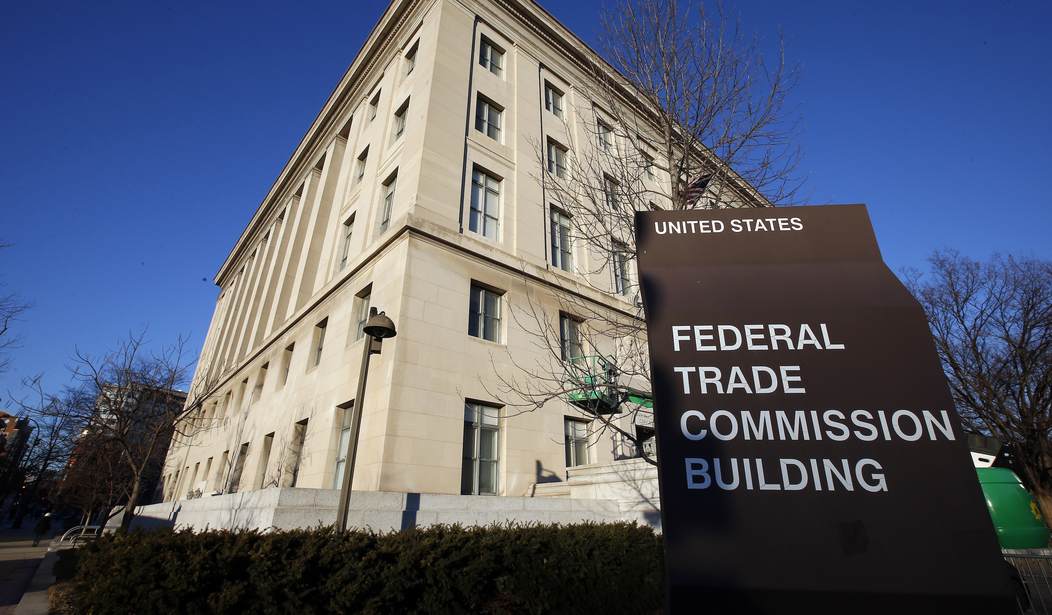The Federal Trade Commission is reportedly threatening to sue an adtech company it alleges is sharing people’s visits to abortion clinics.
The FTC’s proposed complaint against Kochava, which is based in Sandpoint, Idaho, argues that the company violates laws prohibiting “unfair or deceptive practices.” Allegedly, Kochava allows its customers to license data collected from cell phones that can identify people and pinpoint their visits to abortion clinics (via The Washington Post):
In addition to women’s reproductive health clinics, the agency argues that the data can be used to trace people to therapists’ offices, addiction recovery centers and other medical facilities. Because the coordinates the company collects included a time stamp, they can be used to identify when a person visited a location.
Kochava revealed the threat in a Friday lawsuit, where the company says that the agency “wrongfully alleges” that it is in violation of consumer protection laws. The FTC declined to comment.
The action is an early indication of how the agency might assert itself as a defender of health-related data, in the wake of the Supreme Court’s decision to overturn Roe v. Wade in June. The FTC action comes as prominent Democrats, privacy advocates and technologists warn that people’s digital trails could become evidence in abortion prosecutions, and after cases where details like search history and Facebook messages about the procedure have been used as evidence against women.
Townhall covered how President Biden signed an executive order protecting abortion access shortly after the Supreme Court overturned Roe v. Wade. Biden summoned the FTC to help guard data pertaining to abortion.
“The Commission is committed to using the full scope of its legal authorities to protect consumers’ privacy. We will vigorously enforce the law if we uncover illegal conduct that exploits Americans’ location, health, or other sensitive data,” the agency wrote in a blog post days after Biden signed the order.
Recommended
In the blog post, the FTC mentioned abortion specifically.
Now let’s consider a particularly sensitive subset at the intersection of location and health: information related to personal reproductive matters – for example, products that track women’s periods, monitor their fertility, oversee their contraceptive use, or even target women considering abortion.
The concerns many have expressed about the risk of misuse are more than just theoretical. In 2017, for example, the Massachusetts Attorney General reached a settlement with marketing company Copley Advertising, LLC, and its principal for using location technology to identify when people crossed a secret digital “fence” near a clinic offering abortion services. Based on that data, the company sent targeted ads to their phones with links to websites with information about alternatives to abortion. The Massachusetts AG asserted that the practice violated state consumer protection law.
And just recently, the FTC reached a settlement with Flo Health, alleging the company shared with third parties – including Google and Facebook – sensitive health information about women collected from its period and fertility-tracking app, despite promising to keep this information private.
The misuse of mobile location and health information – including reproductive health data – exposes consumers to significant harm. Criminals can use location or health data to facilitate phishing scams or commit identity theft. Stalkers and other criminals can use location or health data to inflict physical and emotional injury. The exposure of health information and medical conditions, especially data related to sexual activity or reproductive health, may subject people to discrimination, stigma, mental anguish, or other serious harms. Those are just a few of the potential injuries – harms that are exacerbated by the exploitation of information gleaned through commercial surveillance.
Leah covered Aug. 10 how a Nebraska mother allegedly helped her teenage daughter carry out an illegal abortion, after 20 weeks, then burn and bury the baby. However, mainstream media outlets were focused on the fact that tech giant Facebook provided the mother and daughter’s messages to police and that they were being prosecuted for an abortion.

























Join the conversation as a VIP Member